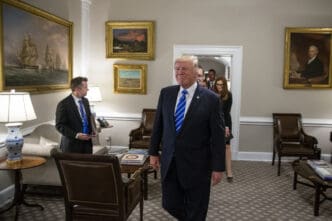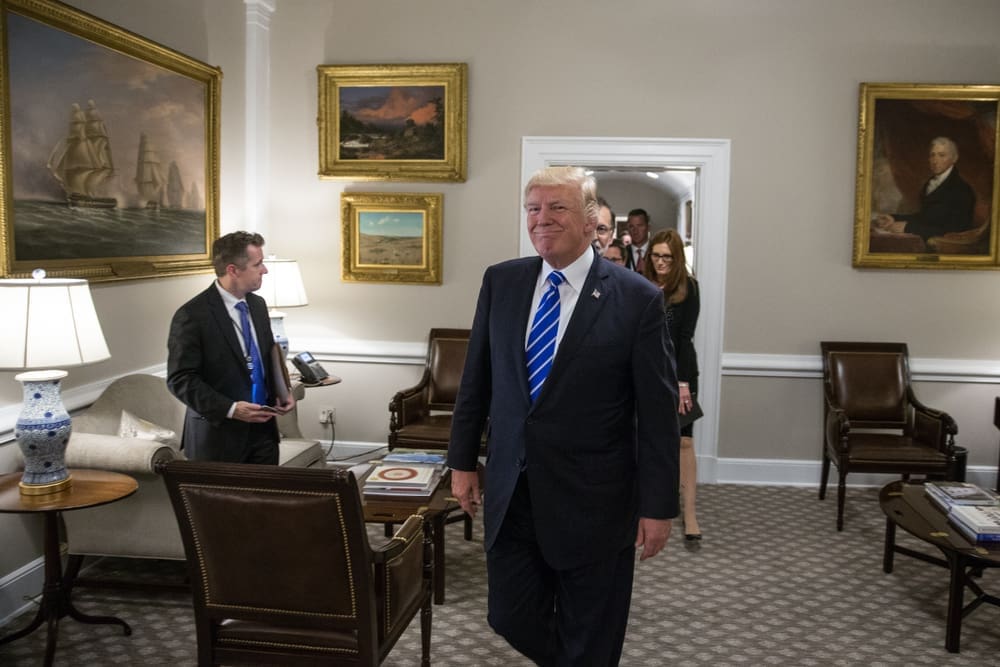Executive Summary
The Story So Far
Why This Matters
Who Thinks What?
President Donald Trump significantly altered his administration’s carefully planned announcement regarding new guidance on a potential link between acetaminophen use during pregnancy and autism, publicly promoting unproven theories and vaccine skepticism. The President’s remarks Monday from the Roosevelt Room, which included urging pregnant women to avoid acetaminophen except in rare cases and expressing doubts about childhood immunizations, reportedly stunned health officials who had aimed for a more nuanced message.
Administration’s Initial Plans
Senior Trump administration health officials had spent days crafting a delicate rollout for new guidance suggesting a possible association between acetaminophen, the active ingredient in Tylenol, and higher autism rates. The planned event was intended to highlight a cautious new warning, announce a $50 million investment in further autism research, and approve a potential treatment. The Department of Health and Human Services (HHS) intended to present a measured message, emphasizing a “potential association” based on existing research and acknowledging conflicting studies.
President Trump’s Statements
During the announcement, Trump declared, “I’ve been waiting for this meeting for 20 years,” and stated he “always had very strong feelings about autism and how it happened and where it came from.” He then promoted a range of unproven theories about autism, Tylenol, and vaccines, including an anecdote about a former employee’s child who allegedly developed autism after vaccination. President Trump explicitly said, “taking Tylenol is not good,” and urged pregnant women to “tough it out” rather than take the medication, going beyond the evidence presented to him by officials.
Officials and Experts React
Administration officials and close advisers privately acknowledged that Trump’s blanket assertions went well beyond the underlying evidence, turning a “possible association” into a definitive causal link. They noted the President’s personal fixation on autism, which predates his political career, as a driving factor. A White House official defended Trump’s approach, stating, “He has his own speaking style and communications style, and that’s part of the authenticity.”
However, the display alarmed autism researchers and public health experts. Joshua Anbar, an Arizona State University professor specializing in autism, warned that telling women to avoid their only available option for pain relief could be problematic without stronger evidence. Ashish Jha, dean of Brown University’s School of Public Health, described it as “possibly the worst public health press conference I have ever seen in my life.”
White House Defense and Historical Context
White House press secretary Karoline Leavitt issued a statement defending the administration, saying it “does not believe popping more pills is always the answer for better health.” She added, “There is mounting evidence finding a connection between acetaminophen use during pregnancy and autism, and that’s why the Administration is courageously issuing this new health guidance.”
President Trump’s interest in autism and its potential causes is long-standing, with allies and advisers noting observations of friends with autistic children and his own experiences as a parent. He has often floated the possibility of a link between childhood vaccinations and autism, an assertion he resurfaced during Monday’s event to the surprise of aides. Health Secretary Robert F. Kennedy Jr., who stood by during Trump’s remarks, has also expressed a conviction for finding a singular cause of autism, despite the scientific community’s view that it is likely fueled by a combination of genetic and environmental factors and better diagnoses.
Following President Trump’s statements, Kennedy acknowledged “contrary studies that show no association” and that there is no better alternative for managing fever and pain during pregnancy. HHS spokesperson Andrew Nixon stated that Trump and Kennedy would “remain focused on uncovering the root cause of the chronic disease crisis, especially in our children.”
Key Takeaways
President Trump’s public remarks on autism, acetaminophen, and vaccines diverged significantly from the carefully prepared scientific guidance of his administration’s health officials. While the administration had planned to announce cautious new research and a “potential association,” Trump’s statements presented definitive conclusions and promoted unproven theories. This approach has drawn both internal efforts to downplay the episode and sharp criticism from public health experts concerned about potential confusion and harm to pregnant women and families.








